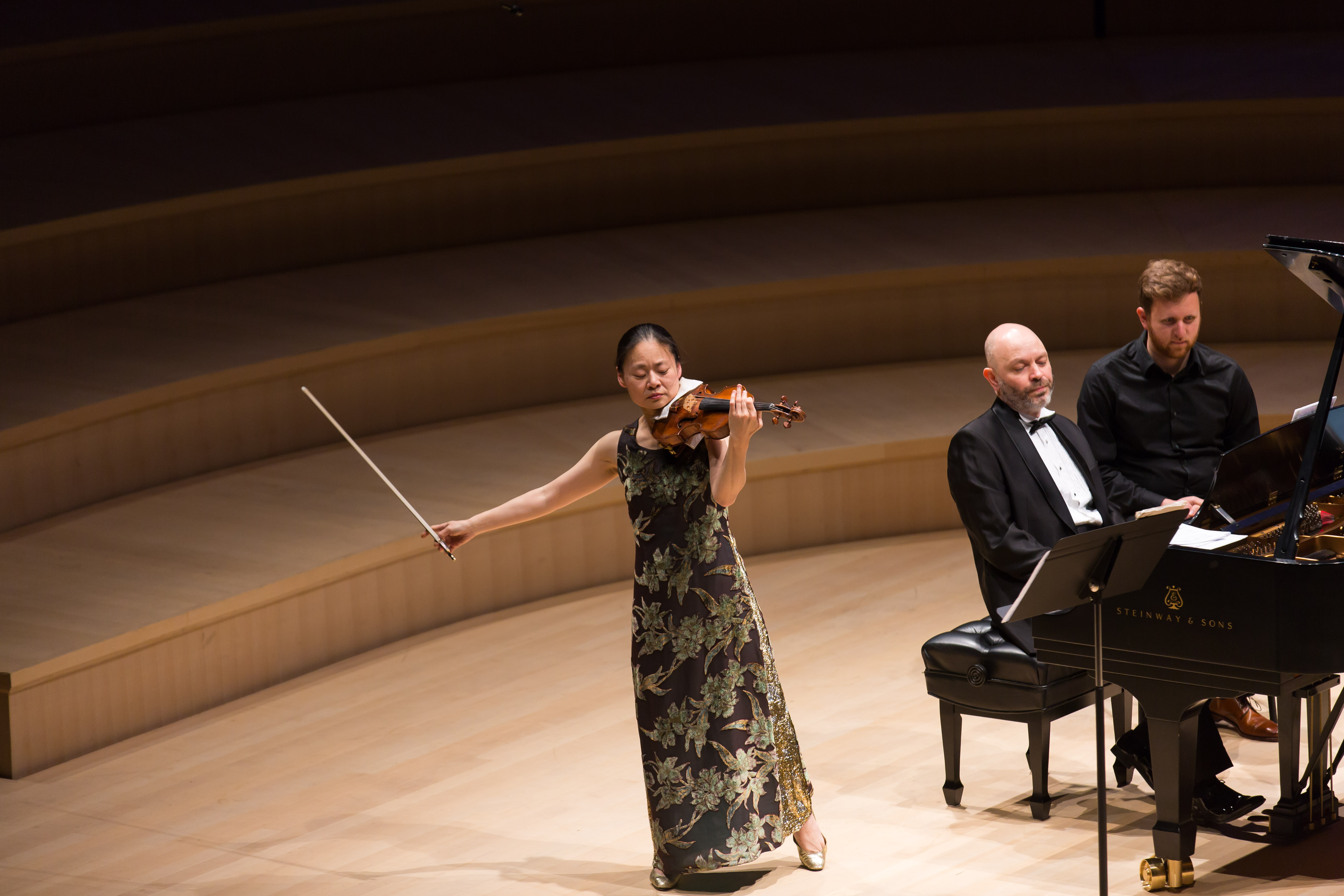
One measure of success few artists reach is recognition from their first name alone — think Michelangelo, or even Madonna. Violinist Midori Goto, simply known as Midori, has achieved that level of acclaim, and then some. This past Sunday, she put that talent on display at Bing, performing to a sold-out concert hall.
She began the afternoon with Johann Sebastian Bach’s “Sonata No. 3 in E Major,” accompanied by pianist Ozgur Aydin. From the start, Midori commanded the stage, with her fluid body movements that blended perfectly with the music. She turned the usually dry, detached style of Bach into a more expressive, connected melody while still maintaining the characteristic clean tone of Baroque music. Each of the four movements of the Sonata were short and sweet, allowing Midori to showcase different styles of playing, from a light, airy touch in the second movement to a more lively mood in the final movement.
During “Fantasie in C Major,” composed by Franz Schubert, Midori truly outdid herself, both technically and artistically. The approximately 20-minute piece saw her play beautifully clean trills, even slurs across multiple strings, strong tremelos and a variety of other impressive techniques. But the Fantasie wasn’t all about mechanics — Midori also engaged the audience with her visual presence, mirroring changes in dynamic with her posture, adding flair to a released downbow. The final section of the Fantasie was the highlight of the afternoon: In perfect coordination, Midori and Aydin played a series of grand, separated chords. The pair didn’t need to slow to make eye contact, and in fact, only gained momentum with each note.
Midori concluded the night with Pyotr Ilyich Tchaikovsky’s “Valse sentimentale” and “Valse scherzo,” returning once again to short and sweet pieces after Schubert’s lengthy “Fantasie.” The two waltzes added yet another dimension to Midori, as she stepped away from the deliberate elegance of the previous works and adopted a more liberated mood to match the gypsy-esque nature and liveliness of the final pieces. She truly captured the spirit of the waltzes, bringing to mind images of people swirling in dance, taking skilled liberties with tempo.
After multiple rounds of applause, Midori and Aydin came onstage once more for an encore. The piece itself was an interesting choice — sweet and delicate, rather than the oft-chosen flashy crowd-favorites. The piece still brought the crowd to its feet for yet another standing ovation, illustrating just how Midori has become the single-name sensation she is.
Contact Serena Wong at serenaw ‘at’ stanford.edu.
